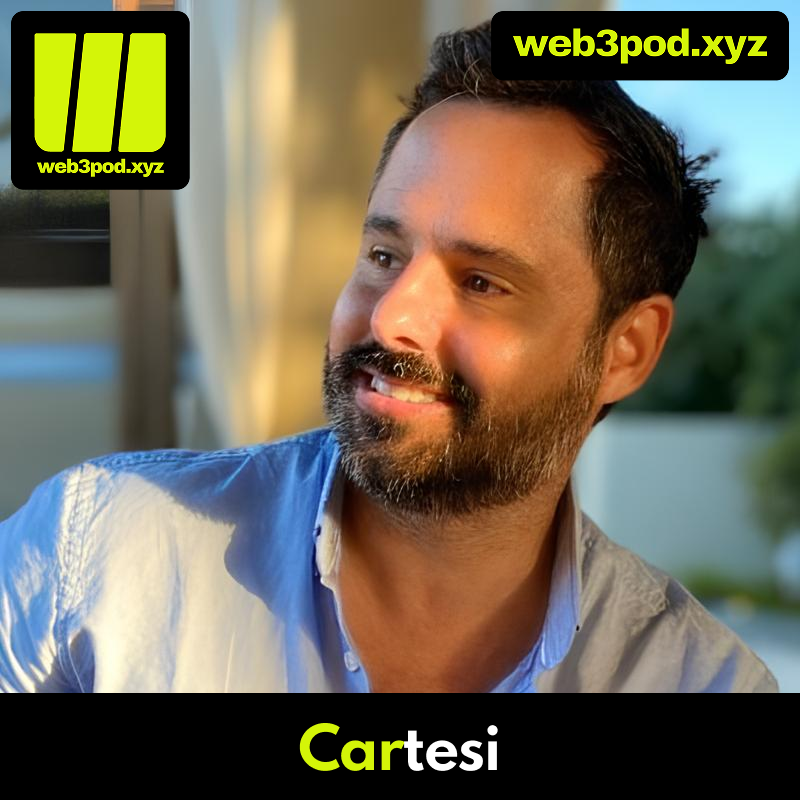Zero trust in Web3: The future of blockchain security with D Wallet Network
.jpg)
Security is not a layer to be added later—it must be foundational.
In episode 153 of Web3 with Sam Kamani, I had the chance to sit down with Omer Sadika, founder of D Wallet Network, whose background in Web 2.0 cybersecurity gives him a unique vantage point on what needs fixing in Web3. And fix it, he just might.
What followed was a deep, unflinching conversation about zero trust, multi-chain vulnerability, and the power of MPC (Multi-Party Computation) in redefining what it means to transact securely on decentralized systems.
From Web 2.0 to Web 3.0: A personal evolution
Omer’s journey started in conventional enterprise cybersecurity, where perimeter-based defenses (think firewalls and VPNs) were the norm. But in a decentralized world where users interact across protocols and platforms, the old “trust but verify” approach doesn’t hold up.
Instead, zero trust is the name of the game.
What is Zero Trust?
At its core, zero trust is simple: never trust, always verify.
No actor—internal or external—is inherently trusted. Every action must be authenticated, every access verified, and every interaction assumed hostile until proven otherwise.
While the term “zero trust” has become something of a buzzword in enterprise IT, Omer argues that blockchain itself is the most authentic realization of the zero trust model. In networks like Ethereum and Bitcoin, consensus is not based on trust but on cryptography, transparency, and immutability.
So why do Web3 apps still suffer major exploits?
Because while the base layers may be trustless, the bridges, wallets, and multi-chain interactions often aren’t.
The multi-chain problem
Cross-chain transactions open a world of possibilities—and vulnerabilities. From bridge hacks to compromised wallets, the weakest link often lies in how assets move between ecosystems.
D Wallet Network approaches this with zero trust principles embedded at the architectural level. Rather than relying on centralized validators or single-point key custodians, their solution is distributed, cryptographic, and verifiable.
Enter: MPC.
A better way to manage keys
Multi-Party Computation (MPC) allows multiple parties to jointly compute a function (like signing a transaction) without ever revealing their individual inputs. That means no single party ever holds the complete private key—making it significantly harder for attackers to compromise user funds.
Omer breaks down their specific implementation: 2PC MPC (Two-Party Computation). It strikes a balance between security and performance, enabling trustless interaction without the latency or cost of fully homomorphic encryption or zk-proofs.
Educating the market
Despite the technical sophistication of solutions like D Wallet’s, Omer emphasizes a more practical hurdle: awareness.
Many founders still misunderstand or underestimate the need for zero trust systems. They ship fast and worry about security later. But in Web3, where exploits can cost millions in seconds, security must be native, not reactive.
Market education—through podcasts like this, blog posts, and developer outreach—is key.
Looking ahead: Innovation and advice
The conversation also veered into exciting territory: newer protocols like Sui and languages like Move, which introduce more secure programming models for smart contracts. For Omer, these innovations are not just nice-to-haves—they represent the future of safer, more scalable decentralized systems.
His advice to founders?
🔹 Focus on solving real, painful problems
🔹 Don’t get distracted by hype
🔹 Build with security at the core
Web3 is moving fast—but that’s no excuse to build insecure systems.
Final Thoughts
The next wave of Web3 innovation won’t be led by who moves the fastest, but by who builds the most secure, resilient, and trustless systems.
D Wallet Network isn’t just plugging holes in a sinking ship. They’re redesigning the ship itself—with zero trust as the blueprint.
Whether you're a founder, investor, or user in the Web3 ecosystem, it's time to rethink what security really means in a decentralized world.
🔗 Links and Resources




